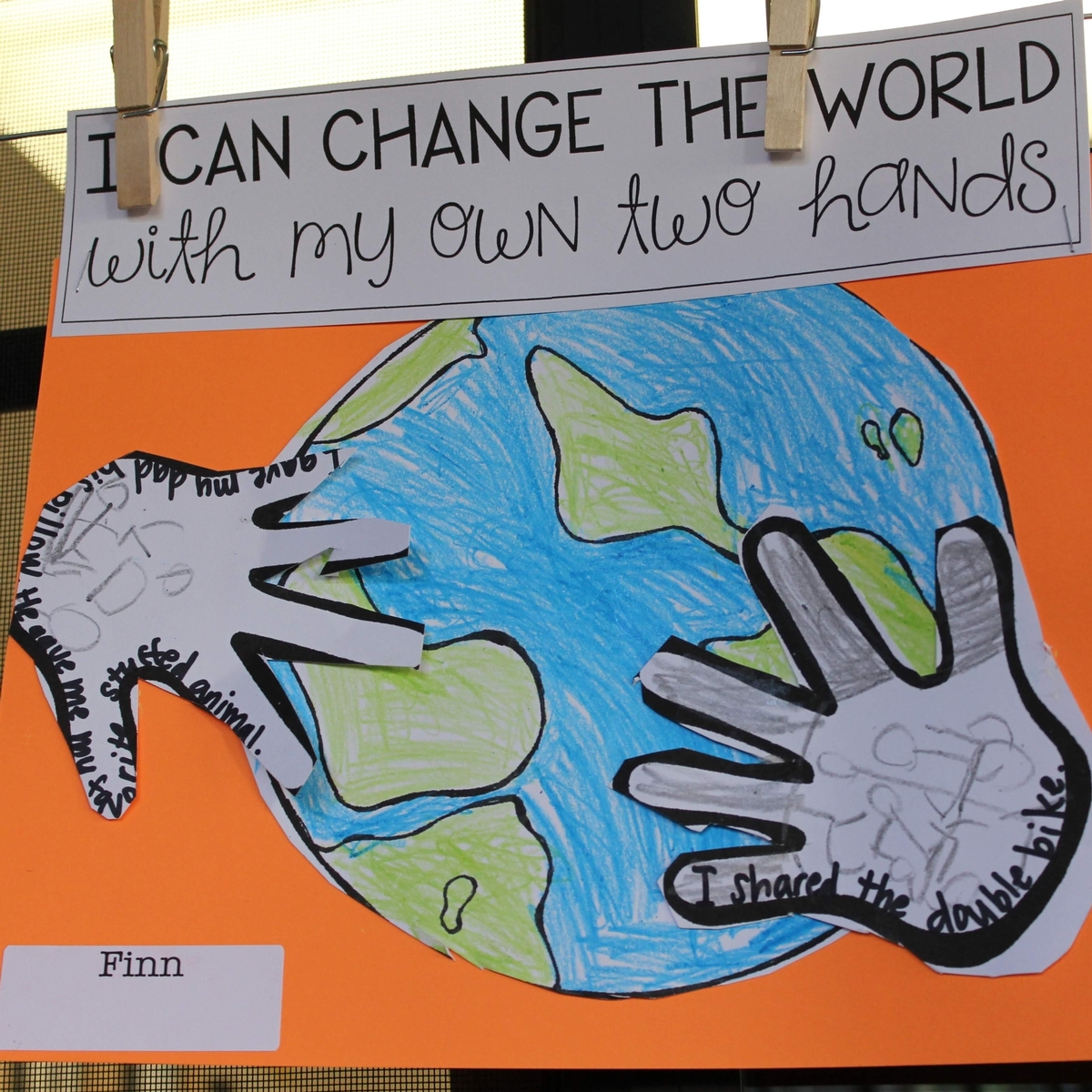What’s In It For Me Is You

One night many years ago, two of my dearest friends spent most of the evening engaged in a spirited debate on the idea of selfless volunteerism. Michael and David articulated logical arguments for their respective sides of the topic, and by the end of the night, neither one gave in to the other’s position. I enjoyed the discussion, though ultimately, I felt they were both missing the point. To me, it didn’t matter whether the person volunteering at a soup kitchen got anything out of their community service or not, though I think they usually do. As Tom Gerdy said in an article for Huffington Post on the topic of volunteerism, “At the end of the day, you can see that you have moved the world one step. It is difficult to feel much better.”
I love Gerdy’s image that one has moved the world a step forward by giving back to the community, but it may be a bit simpler than that. My father-in-law often says, “You do what’s right because it’s right,” and community service falls under the umbrella of what is right. Both the Old and New Testaments have many calls for us to help one another. “Thou shalt open thine hand wide unto thy brother, to thy poor, and to thy needy, in thy land,” Deuteronomy 15:11.
I find this verse terribly sad because, in its entirety, God says that poverty and want will always be a part of the human condition. Yet, even though the poor and needy will always be among us, this verse also commands us to just do what we can to make it better for someone else.
The general theme continues in the Gospels when Jesus is asked which commandment was the greatest. Posed as a trap to ensnare him, Jesus responded that the first commandment, to love God with all one’s heart, was the greatest. He added, “And the second is like unto it, Thou shalt love thy neighbor as thyself,” Matthew 22: 39.
Unlike Michael and David’s philosophical discussion, neither Biblical passage carries a condemnation if the volunteer gets something out of the volunteering. We should all heed God’s call to stretch out our hand and help. If the act is selfless, fine. If volunteering is, as Gerdy also claims in his Huffington Post article, “anything but a selfless act. It is quite selfish,” well that’s okay as well.
Many schools take the “selfish is fine” approach and will say upfront that they feel volunteering can help a student build their academic resume, just as many adults volunteer to help pad their professional resume. While I think that’s true at its most basic level, there are some more altruistic reasons one should volunteer. The tangible benefits and skills adults and children can gain through community service include communication, leadership, time management, problem-solving, and collaboration. This skill acquisition is especially true if one is trying to lead some type of community service project.
In addition to tangible skills such as these, volunteering can also allow someone to gain a better perspective of the world around them. Schools such as Gooden say they want to graduate young people who are more informed and who can make enlightened and rational choices about themselves and the world in which they live. Community service is a great way to help young people develop that ability.
Along the same line, volunteering can help people become more empathetic. The act of giving of one’s time, in particular, requires a certain level of empathy, and the more one gives to others, research indicates the more empathetic that person becomes.
So how should one go about getting a child involved in community service? The carrot or stick approach might be a good place to start. “For every hour you spend at the shelter, I’ll give you five dollars,” seems like a good idea. Yet, some research indicates that incentives for helping others can be counterproductive. The act is undertaken for the reward, not the intrinsic, though potentially selfish, value of the act itself. So maybe the carrot isn’t a good way to come at this. If the carrot doesn’t work too well, the stick certainly isn't a good option either. “If you don’t volunteer, I’ll take your iPad away.”
I keep being drawn back to Deuteronomy and Matthew when I think about how to instill the value of service to others in my child. It’s just what we do, and as in other arenas, it’s what we do as a family. Role modeling a behavior is the best way to see it adopted by others. Please join me in stretching out one hand to your family and the other to your neighbor. In the end, it benefits us all.

